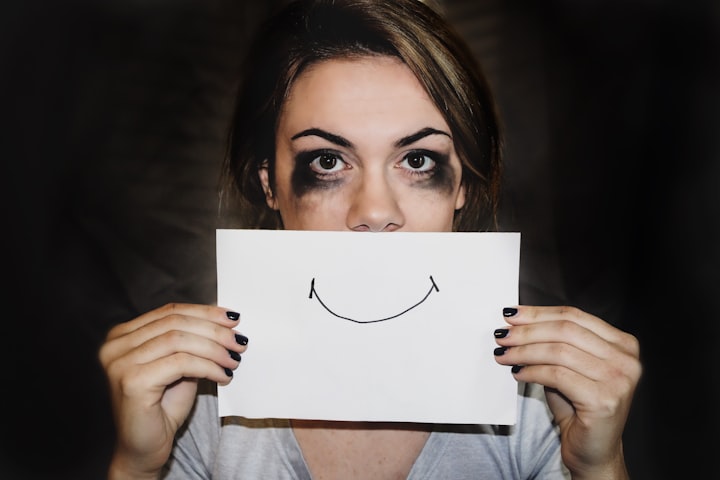
Do you ever feel like you're not good enough? That you don't belong? That everyone is watching and judging you? If so, you may be experiencing social anxiety. Social anxiety is the fear of being judged by others in social situations. It can cause people to avoid social situations altogether or only participate when they are indispensable.
For some people, social anxiety is so severe that it interferes with their work, school, and personal relationships. Unfortunately, if you suffer from social anxiety, know that you are not alone. It is a common condition that affects millions of people worldwide. But there is hope! With treatment, most people with social anxiety can learn to manage their symptoms and live meaningful, enjoyable lives.
1. What is social anxiety?
Social anxiety is a condition characterized by excessive fear and distress in social situations. People with social anxiety may experience intense self-consciousness, worry about being judged or evaluated negatively by others, and worry that they will say or do something foolish or embarrassing.
These anxieties can be so overwhelming that they interfere with a person's ability to function normally in their day-to-day life. While the causes of social anxiety are not entirely clear, it is thought to stem partly from an imbalance in certain brain chemicals, such as serotonin and dopamine.
Some people find that strategies such as cognitive behavioral therapy, mindfulness practices, and medication can help to manage their symptoms and alleviate their suffering. But ultimately, it is vital to seek professional help if you are experiencing social anxiety to restore your well-being and your ability to connect with others.
2. What are the symptoms of social anxiety?
Social anxiety is a condition characterized by an intense fear of social interaction or performance situations. This fear can manifest in many ways, including physical symptoms such as sweating, shaking, dizziness, and difficulty breathing. In addition, people with social anxiety may also experience mental symptoms like excessive worry, self-doubt, or negative thoughts about themselves or others.
Additionally, they may avoid specific situations out of fear of potential embarrassment or rejection. If you are experiencing any of these symptoms, it is essential to seek professional help to get the treatment you need and start living a happier and more fulfilling life. Through therapy and other forms of support, you can work to overcome your social anxiety and start living your best life.
3. What causes social anxiety in adults?
Social anxiety is a complex disorder that can have many different underlying causes. For some people, it may stem from underlying mental health conditions or trauma. For others, social anxiety may result from negative past experiences or unhealthy attitudes toward social situations.
Additionally, some individuals may be more predisposed to social anxiety due to genetic or environmental factors. Regardless of the specific root cause of social anxiety, it is crucial for adults who struggle with these feelings to seek the help of qualified professionals to develop an effective treatment plan.
Through cognitive behavioral therapy and exposure therapy, those with social anxiety can learn healthy coping mechanisms and develop a more positive attitude toward social interactions. With proper support and treatment, even the most socially anxious adults can overcome their fears and live fulfilling independent lives.

4. How to deal with social anxiety?
Social anxiety is a common problem that affects many people across the world. This condition can cause intense feelings of fear, self-consciousness, and inadequacy in social or performance situations. While there is no one "cure" for social anxiety, there are several strategies that can help you manage your symptoms and cope with this challenging condition.
One helpful approach is to practice relaxation techniques such as deep breathing or visualization exercises. These tools can help calm your nerves and reduce anxious thoughts in social or performance situations.
Additionally, you may find it helpful to identify and work on specific issues that contribute to your anxiety, such as low self-esteem or negative thought patterns. Experts also recommend staying connected with family and friends, especially those who understand what you are going through and will be supportive during difficult times.
Whether you are dealing with mild levels of social anxiety or a more severe case, it is vital to seek help from a professional therapist if your symptoms are significantly impacting your life. Counseling can provide valuable support as you work on managing this condition and developing new skills for more effective coping strategies. With the right tools and support, it is possible to overcome social anxiety and live a happier, more confident life.
5. The benefits of overcoming social anxiety?
For many people, social anxiety is a significant obstacle that stands in the way of living a full and productive life. Avoiding social situations or feeling painfully self-conscious in public can make it difficult to form lasting relationships. I can also make it hard to pursue meaningful work or achieve personal goals. Luckily, proven strategies can help us overcome our social anxieties and embrace the world around us confidently and efficiently.
One of the most effective approaches to overcoming social anxiety is cognitive behavioral therapy, which helps us understand the patterns and thoughts that underlie our anxious behaviors. Through this type of therapy, we can gain insight into how we view ourselves and others in social interactions and what triggers our fear and worry. By working through these issues one by one, we can start to build the tools we need to manage social anxiety on our own.
Beyond individual therapy, many helpful options for group settings or online communities offer ongoing support and practical tips for beating social anxiety. For many people, simply knowing that they are not alone in their struggle and receiving encouragement from like-minded individuals can be profoundly helpful in building confidence and gaining freedom from debilitating fears.
However you choose to tackle your social anxiety, remember that with time, patience, and determination, it is possible to overcome this challenge and enjoy living a rich and fulfilling life.
Social anxiety is a common issue that can cause intense feelings of fear, self-consciousness, and inadequacy in social situations. While there is no one "cure" for social anxiety, several practical strategies can help you manage your symptoms and cope with this condition.
Some practical approaches include practicing relaxation techniques, working on specific issues contributing to your anxiety, and staying connected with supportive family and friends. Additionally, seeking professional counseling can provide valuable support as you work on managing social anxiety and developing new skills for more effective coping strategies. With the right tools and support, it is possible to overcome social anxiety and live a happier, more confident life.
About the Creator
Edy Zoo
Edy Zoo is an author who writes about social subjects. He contributes to the ever-growing library of social critics.






Comments
There are no comments for this story
Be the first to respond and start the conversation.